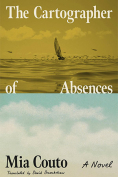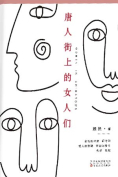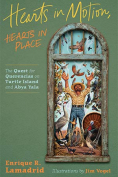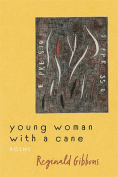Les tigres ne mangent pas les étoiles by Cécile Oumhani

Tunis. Éditions Elyzad. 2024. 160 pages.
What do tigers have to do with stars that form scintillating necklaces of heavenly bodies in the Central Asian sky or with the nightly illuminations of Western city streets? The title of Oumhani’s novel (Tigers don’t eat the stars) is a quote from the narrator’s father, whose Indian amah called him home at dusk, assuring him that the stars were protecting him in the darkness. Twin stories are born from these stars. We meet two young boys both raised in India, in separate places, one rich, the other poor. Their life story is told in mirror fashion by their daughters, whom a flight delay in Bahrain brings together in 2012, on their way to honor their fathers. The women tell their story within a twelve-hour in-between suspended time, like a Greek tragedy.
It is a breath-book, its chapters rhythmed by spoken stories. Telling their own lives and their fathers’ impact on them, the women expose multigenerational and multiple experiences of exile, survival, pain, and resilience throughout the twentieth century. There is no longer East or West; exile is equally painful for the privileged and the poor. Meena, an Afghan refugee, has as much empathy for ordinary Germans’ experiences during World War II as for her own family. The narrator recalls the impact of hearing about her father’s privileged Indian childhood followed by a return to England and a life in perpetual physical and emotional exile. The mishaps of postcolonialism are evident, however. If the narrator can continue her trip to a conference and grieve her recently deceased father in physical safety, Meena, who is visiting her dying father, must brave a harrowing winter trip across mountains and face grave dangers while traveling alone in a country at war.
Oumhani has written seven novels, five of which have been awarded literary prizes. She is also noted for her eighteen volumes of poetry and five volumes of short stories and prose essays. Tigers Don’t Eat the Stars reveals the extent of her writing skills. Through evocations of colors and smells and nature that the narrator wants to experience firsthand and that Meena wants to relive once more, Oumhani presents the multicolored and vibrant world of India in flowing poetic prose and finds the perfect words to evoke the urgency with which Meena and the narrator share their lives. The novel ends with follow-up mobile phone messages between the two women, bringing us back from an enchanting universe of childhood and innocence lost. Their friendship echoes Oumhani’s recent works that emphasize the search for roots.
Tigers Don’t Eat the Stars has been nominated for several prizes, published in paperback, translated in German, and presented to multiple audiences in France, Tunisia, India, Germany, and Italy. Oumhani herself grew up in a multicultural family on several continents. While pursuing a distinguished university career, she penned a work that has been praised for its elegance and delicate treatment of women’s issues. She serves on the editorial board of the literary magazine Apulée and is a member of the Francophone Women Writers’ Parliament.
Alice-Catherine Carls
University of Tennessee at Martin

































